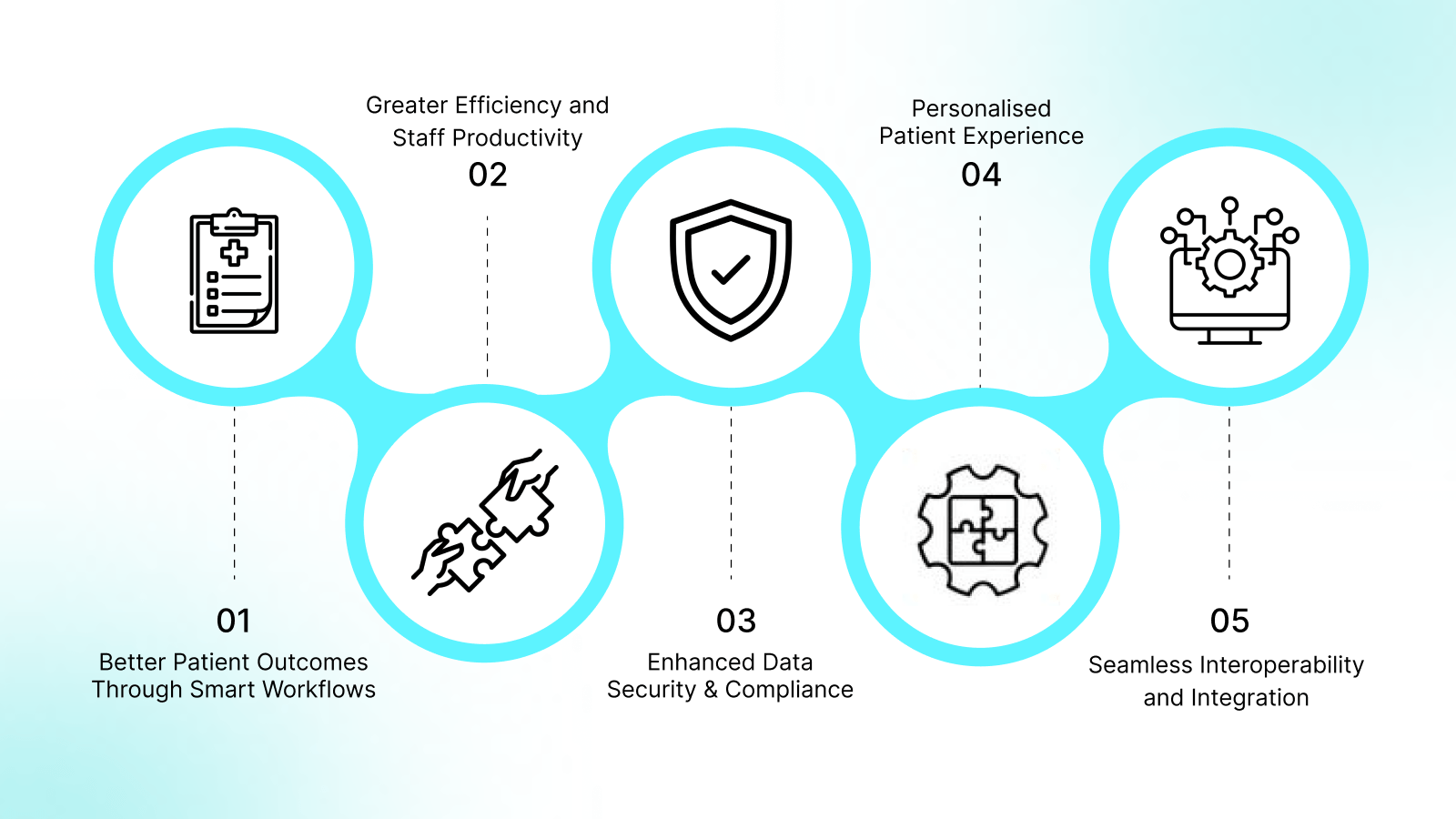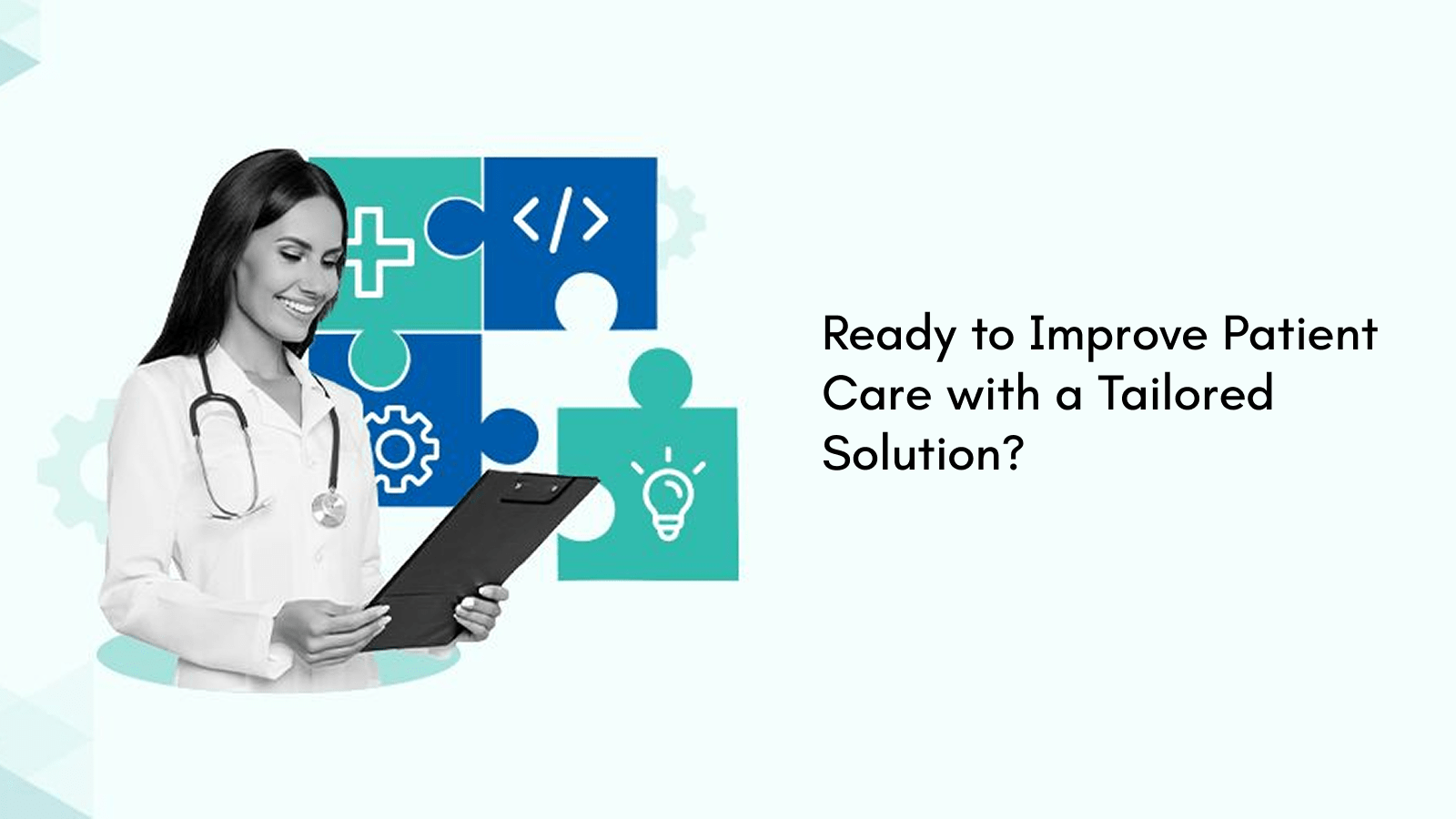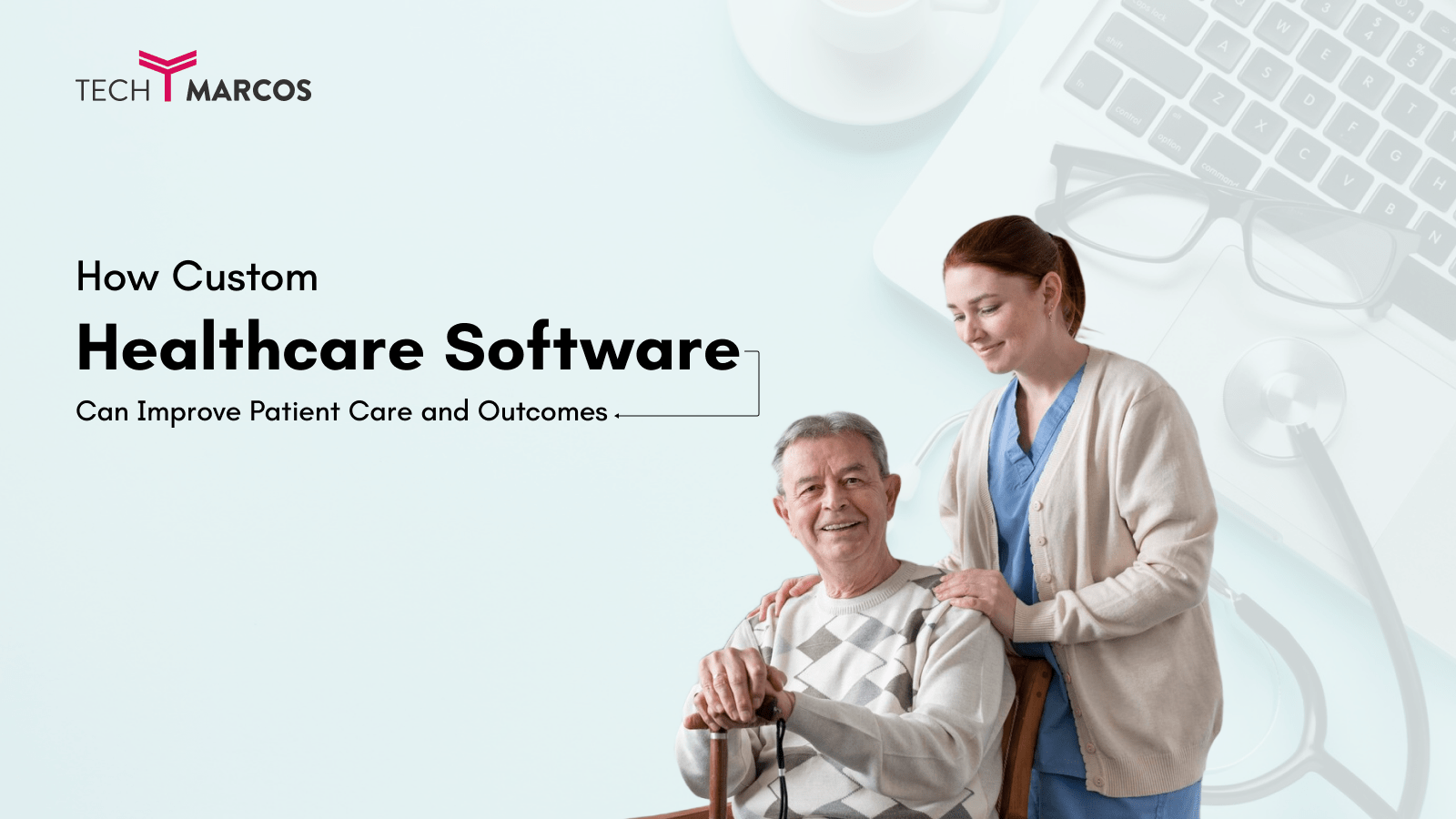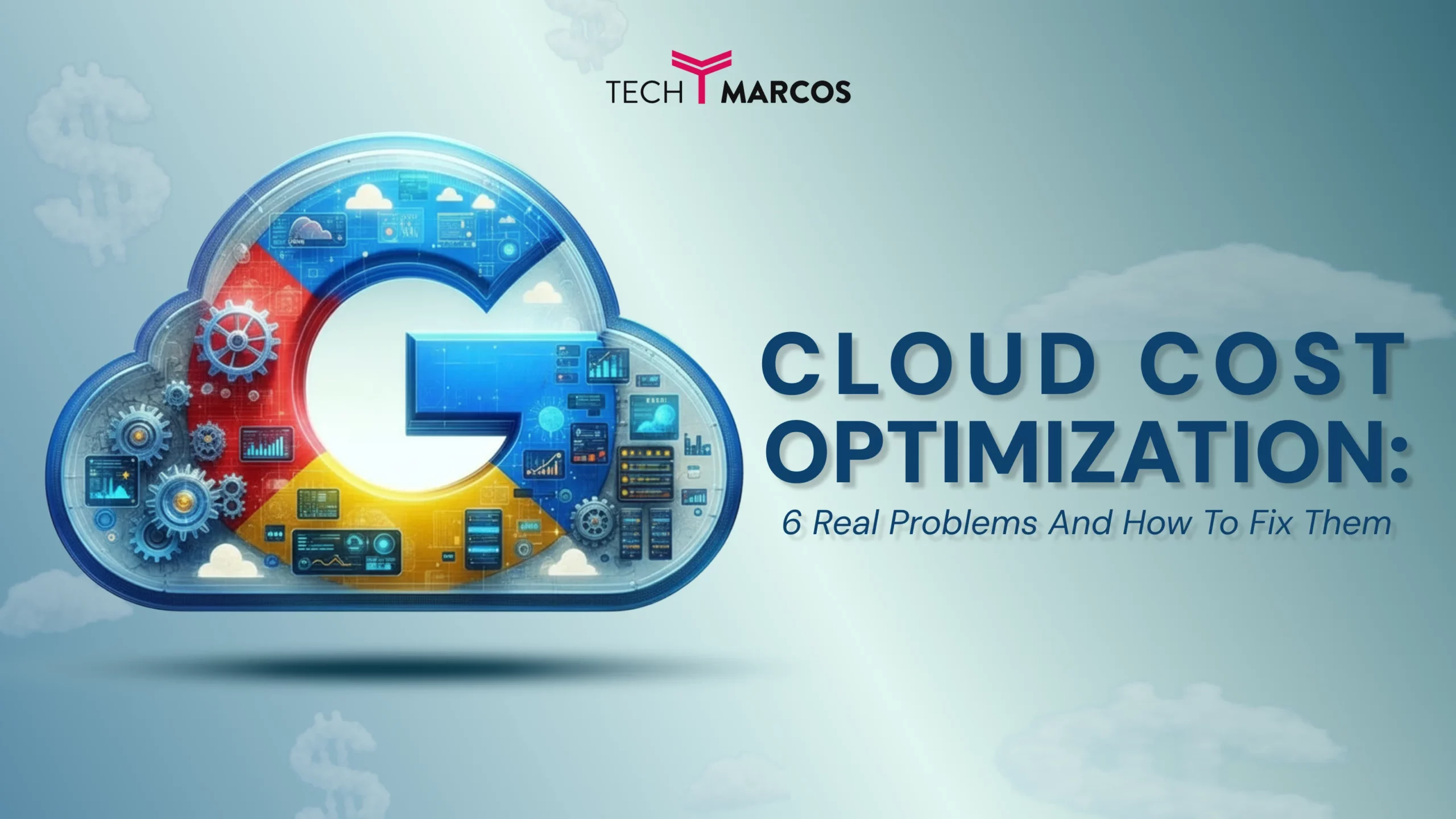How Custom Healthcare Software Development Improves Patient Care and Outcomes
|
Getting your Trinity Audio player ready...
|
Healthcare systems cannot afford to be dependent on outdated or fragmented data in a world where every second counts. There is a lot of pressure on healthcare providers to meet patients’ expectations for faster, more accurate, and highly personalised care while also remaining efficient and compliant.
That’s where custom healthcare software development comes in — not as a luxury, but as a necessity.
Technology is quickly becoming an invisible companion in every aspect of healthcare, from AI-powered diagnostics to automated administrative workflows and real-time patient monitoring. Healthcare gets optimised, not merely digitised, with custom-built solutions. They enable healthcare facilities, including hospitals and clinics, as well as lean startups, to improve patient outcomes by removing obstacles, safeguarding data, and ensuring data security.
In this article, we will discuss the 10 compelling advantages of custom healthcare software and how it can assist medical organizations to change business operations, provide care and create health systems that are ready to face the future.
Why Technology Is Reshaping Patient Care
Healthcare is no longer restricted within the four walls of a clinic or a hospital. Whether it is virtual consultation and AI diagnostics, mobile health tracking and predictive analytics, technology is essentially transforming the way care is delivered the way it is faster, smarter and more personal.
However, even in the context of such achievements, most medical workers are still stuck in old legacy systems or generalized software not designed to handle the nuances of actual practice. Such fixed systems usually cause inefficiency, weak data-sharing, and vulnerabilities that may jeopardize the operations and trust of the patients.
It is at this point that custom healthcare software development is not only a modernisation, but a strategic change. Custom solutions are created to fit perfectly within the specifics of your facility, covering the integration with current EHR systems, automation of the reporting process, telemedicine, and next-gen security to protect the sensitive data of your patients.
Custom technology doesn’t just support your team — it elevates your entire care model.
Common Challenges Faced by Hospitals and Clinics
Before we explore how custom software can help, let’s look at the real-world problems healthcare organisations face:
- Fragmented patient data across systems, making care coordination difficult
- Manual administrative tasks that drain valuable staff time
- Security vulnerabilities and compliance risks (HIPAA, GDPR, etc.)
- Inflexible software that doesn’t match existing workflows
- Poor patient engagement and communication channels
- Lack of interoperability between labs, pharmacies, EHRs, and billing systems
Sound familiar? These issues not only reduce efficiency but also compromise the quality of patient care.
Types of Healthcare Software That Can Be Custom-Built
A custom healthcare software can be molded to accommodate virtually all realm of a medical practice or hospital system:
- EHR/EMR Systems with specialty-specific modules
- Patient Portals for appointment scheduling and reports
- Telemedicine Platforms for virtual consultations
- Clinical Decision Support Systems (CDSS) powered by AI
- Medical Billing and Insurance Claim Systems
- Lab Information Systems (LIS) and diagnostic integration
- ePrescription and Medication Management Tools
- Hospital Management Systems (HMS)
Off-the-shelf tools attempt everything and usually fail to fit the specifics within your operations. Custom development ensures the software works for you — not the other way around.
Key Benefits of Custom Healthcare Software Development

1. Better Patient Outcomes Through Smart Workflows
Custom software allows doctors to access vital information about patients in real-time, making decisions more prompt and correct. It is also useful to automate some of the tedious tasks that clinicians have to do in their work, such as logging of test results, or patient follow-ups.
2. Greater Efficiency and Staff Productivity
Healthcare staff increase patient interaction and decrease admin time by automating appointment scheduling, medication management, billing and record management. This decreases wait time, rescheduling and burning out.
3. Enhanced Data Security & Compliance
One of the highly attacked fields is healthcare. Custom healthcare software allows you to add tough security measures, role-based rights, and complete adherence to rules and regulations such as HIPAA, HITECH, and GDPR, which is not possible with an off-the-shelf tool that usually presents a general security hole.
4. Personalised Patient Experience
Automated reminders to advanced plans of care providers can share a more interconnected and proactive experience with patient solutions that can be tailored. The patients become more supported and occupied, thus showing greater satisfaction and treatment adherence.
5. Seamless Interoperability and Integration
Existing systems can be connected to custom platforms, such as lab reports, imaging tools, third-party APIs, insurance databases and IoT medical devices, to deliver a centralised view of each patient, in a unified way.
Technical Considerations When Building Healthcare Software

Developing custom software for healthcare organisations isn’t just about clean UI — it demands rigorous backend architecture, regulatory knowledge, and medical domain understanding.
Here’s what goes under the hood:
- Data security protocols (encryption, SSL/TLS, secure APIs)
- Scalable architecture for high data volume and concurrent users
- HL7, FHIR standards for interoperability
- Role-based access controls and audit logs
- Cloud deployment with on-premise fallback for hospitals
- Mobile responsiveness for doctors and patients on-the-go
- Real-time analytics for patient monitoring and reporting
- Custom dashboards and automation workflows
By selecting an experienced development partner, these technicalities would be taken care of accurately.
Steps to Build Your Own Custom Healthcare Software
- Define the Problem
What inefficiencies or gaps exist in your current systems? Start with pain points. - Map Your Requirements
Identify key users (doctors, admins, patients) and what features they need. - Choose a Healthcare-Focused Development Partner
Find a team that has a proven expertise in healthcare technology, compliance, and system design. - Design and Prototype
Create user journeys, wireframes, and a scalable data structure. - Develop & Test
Build iteratively with agile development. Test for performance, usability, and security. - Deploy & Train Your Team
Ensure onboarding for staff with support documentation and training. - Maintain & Evolve
Monitor usage, collect feedback, and update the software regularly.
Ready to Improve Patient Care with a Tailored Solution?

Custom healthcare software can provide you a competitive advantage as well as operational advantage in a healthcare environment where healthcare problems are complicated and patient demands are increasing.
If you have a hospital, clinic, or health care startup off to scale quicker, smarter, and inform your patient outcomes — then is the time for you to invest in a custom made solution.
Let’s Talk.
TechMarcos is a custom software development agency that delivers real-world impact — securely, efficiently, and scalably. Connect with us to get started.
1. What is custom healthcare software development?
Custom healthcare software development is the process of creating specific digital products in the form of applications, software, etc. specifically with the hospital, clinic, and healthcare startup, taking into account its own working processes, compliance requirements ( HIPAA/GDPR), or patient care missions.
2. Why should hospitals choose custom software over off-the-shelf solutions?
Unlike generic platforms, custom software is built around your processes, allowing deeper integration, better data security, automation, and scalability as your organization grows.
4. Is custom medical software HIPAA-compliant?
Yes it does have encryption, role-based access, secure API and audit trails, among others, when it is done by an experienced healthcare software development firm.
5. What types of healthcare software can be customized?
Common types include EHR/EMR systems, telemedicine apps, patient portals, hospital management systems (HMS), mobile health apps, custom billing platforms and disease/laboratory systems.
6. How long does it take to build a custom healthcare application?
Timelines vary based on complexity. A simple solution can take 3-4 months, however, a bigger solution in a hospital system or mobile health app can take 6-12+ months.
7. Can I integrate custom software with existing hospital systems?
It is possible, experienced developers can build integrations with legacy servers, third-party APIs, lab software, insurance systems, and IoT devices, so that the data can flow easily.



